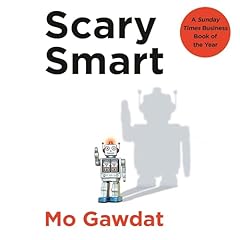
Homo Deus
A Brief History of Tomorrow
No se pudo agregar al carrito
Add to Cart failed.
Error al Agregar a Lista de Deseos.
Error al eliminar de la lista de deseos.
Error al añadir a tu biblioteca
Error al seguir el podcast
Error al dejar de seguir el podcast
 Exclusivo para miembros Prime: ¿Nuevo en Audible? Obtén 2 audiolibros gratis con tu prueba.
Exclusivo para miembros Prime: ¿Nuevo en Audible? Obtén 2 audiolibros gratis con tu prueba.Compra ahora por $29.69
-
Narrado por:
-
Derek Perkins
Yuval Noah Harari, author of the critically-acclaimed New York Times bestseller and international phenomenon Sapiens, returns with an equally original, compelling, and provocative book, turning his focus toward humanity’s future, and our quest to upgrade humans into gods.
Over the past century humankind has managed to do the impossible and rein in famine, plague, and war. This may seem hard to accept, but, as Harari explains in his trademark style—thorough, yet riveting—famine, plague and war have been transformed from incomprehensible and uncontrollable forces of nature into manageable challenges. For the first time ever, more people die from eating too much than from eating too little; more people die from old age than from infectious diseases; and more people commit suicide than are killed by soldiers, terrorists and criminals put together. The average American is a thousand times more likely to die from binging at McDonalds than from being blown up by Al Qaeda.
What then will replace famine, plague, and war at the top of the human agenda? As the self-made gods of planet earth, what destinies will we set ourselves, and which quests will we undertake? Homo Deus explores the projects, dreams and nightmares that will shape the twenty-first century—from overcoming death to creating artificial life. It asks the fundamental questions: Where do we go from here? And how will we protect this fragile world from our own destructive powers? This is the next stage of evolution. This is Homo Deus.
With the same insight and clarity that made Sapiens an international hit and a New York Times bestseller, Harari maps out our future.
Los oyentes también disfrutaron:




















Featured Article: The Best Science Listens to Channel Your Inner Einstein
While you might listen in order to be entertained, there are also a host of works intended to be purely educational. We chose the best science titles on this list for the fact that they are both. These selections not only bring important perspectives on some of the most pressing scientific issues of our time—they’re also written and performed with a refreshing clarity that makes them easy to swallow and entertaining to the end.
Las personas que vieron esto también vieron:


















Evolutionary Experience
Se ha producido un error. Vuelve a intentarlo dentro de unos minutos.
Really this is completely understandable when considering that Sapiens has all of us a the central figure of the story. Homo Deus is NOT this; it has at its center no hero, no answers and even more disturbingly, the latest set of deep and meaningful questions to confront humanity. These new questions aren't the age old ones of individual consciousness: Who am I? What's the meaning of life? How long do I have?
They are questions on the level of the species which undermine the dominant ideology of our time if not stealing our dreams for the future.
As the reader you might easily shrug this off and enjoy the concepts presented however for the same reasons we found Harari so compelling in "Sapiens," is the same REASON we can't shake his completely lucid characterization of the predicament humanity finds itself in presently.
Where Sapiens showed our progress and left us hopefully contemplating our happiness unfortunately Homo Deus leaves us with three questions that are more intractable and a sense that even if we answer them, they'll bring no solace...in our brief future.
Don't kill the Messenger
Se ha producido un error. Vuelve a intentarlo dentro de unos minutos.
Great! Makes you think.
Se ha producido un error. Vuelve a intentarlo dentro de unos minutos.
A Really Good Listen
Se ha producido un error. Vuelve a intentarlo dentro de unos minutos.
thought provoking
Se ha producido un error. Vuelve a intentarlo dentro de unos minutos.



